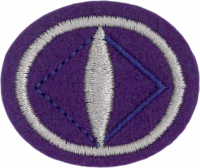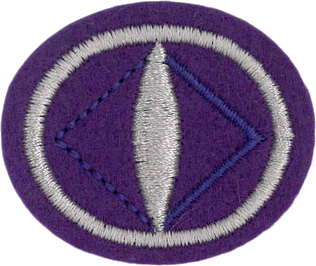Difference between revisions of "AY Honors/Optics/Requirements"
Jomegat bot (talk | contribs) m (Protected "AY Honor Optics Requirements": Bot: Protecting all pages from category .*/e[sn] ([Move=Allow only administrators] (indefinite) [Edit=Allow only administrators] (indefinite))) |
m (- Category of Honor Requirements) |
||
| (4 intermediate revisions by 2 users not shown) | |||
| Line 1: | Line 1: | ||
| − | + | {{HonorSubpage}} | |
| − | |||
| − | {{ | ||
<section begin=Body /> | <section begin=Body /> | ||
| − | + | <b>1. <section begin=req1 /><noinclude><translate><!--T:1--> | |
| − | <b>1. <section begin=req1 /><noinclude><translate></noinclude>Define and/or draw a diagram of the following: | + | </noinclude>Define and/or draw a diagram of the following: |
<noinclude></translate></noinclude><section end=req1 /></b> | <noinclude></translate></noinclude><section end=req1 /></b> | ||
| − | :<b>a. <section begin=req1a /><noinclude><translate></noinclude>Focal length | + | :<b>a. <section begin=req1a /><noinclude><translate><!--T:2--> |
| + | </noinclude>Focal length | ||
<noinclude></translate></noinclude><section end=req1a /></b> | <noinclude></translate></noinclude><section end=req1a /></b> | ||
| − | :<b>b. <section begin=req1b /><noinclude><translate></noinclude>Positive lens | + | :<b>b. <section begin=req1b /><noinclude><translate><!--T:3--> |
| + | </noinclude>Positive lens | ||
<noinclude></translate></noinclude><section end=req1b /></b> | <noinclude></translate></noinclude><section end=req1b /></b> | ||
| − | :<b>c. <section begin=req1c /><noinclude><translate></noinclude>Negative lens | + | :<b>c. <section begin=req1c /><noinclude><translate><!--T:4--> |
| + | </noinclude>Negative lens | ||
<noinclude></translate></noinclude><section end=req1c /></b> | <noinclude></translate></noinclude><section end=req1c /></b> | ||
| − | :<b>d. <section begin=req1d /><noinclude><translate></noinclude>Two kinds of distortion | + | :<b>d. <section begin=req1d /><noinclude><translate><!--T:5--> |
| + | </noinclude>Two kinds of distortion | ||
<noinclude></translate></noinclude><section end=req1d /></b> | <noinclude></translate></noinclude><section end=req1d /></b> | ||
| − | :<b>e. <section begin=req1e /><noinclude><translate></noinclude>Longitudinal color | + | :<b>e. <section begin=req1e /><noinclude><translate><!--T:6--> |
| + | </noinclude>Longitudinal color | ||
<noinclude></translate></noinclude><section end=req1e /></b> | <noinclude></translate></noinclude><section end=req1e /></b> | ||
| − | :<b>f. <section begin=req1f /><noinclude><translate></noinclude>Lateral color | + | :<b>f. <section begin=req1f /><noinclude><translate><!--T:7--> |
| + | </noinclude>Lateral color | ||
<noinclude></translate></noinclude><section end=req1f /></b> | <noinclude></translate></noinclude><section end=req1f /></b> | ||
| − | :<b>g. <section begin=req1g /><noinclude><translate></noinclude>Spherical aberration | + | :<b>g. <section begin=req1g /><noinclude><translate><!--T:8--> |
| + | </noinclude>Spherical aberration | ||
<noinclude></translate></noinclude><section end=req1g /></b> | <noinclude></translate></noinclude><section end=req1g /></b> | ||
| − | :<b>h. <section begin=req1h /><noinclude><translate></noinclude>Achromatic lens | + | :<b>h. <section begin=req1h /><noinclude><translate><!--T:9--> |
| + | </noinclude>Achromatic lens | ||
<noinclude></translate></noinclude><section end=req1h /></b> | <noinclude></translate></noinclude><section end=req1h /></b> | ||
| − | :<b>i. <section begin=req1i /><noinclude><translate></noinclude>Refraction of light | + | :<b>i. <section begin=req1i /><noinclude><translate><!--T:10--> |
| + | </noinclude>Refraction of light | ||
<noinclude></translate></noinclude><section end=req1i /></b> | <noinclude></translate></noinclude><section end=req1i /></b> | ||
| − | <b>2. <section begin=req2 /><noinclude><translate></noinclude>Explain how light behaves when it strikes or traverses water, oil, feldspar, and a mirror. | + | <b>2. <section begin=req2 /><noinclude><translate><!--T:11--> |
| + | </noinclude>Explain how light behaves when it strikes or traverses water, oil, feldspar, and a mirror. | ||
<noinclude></translate></noinclude><section end=req2 /></b> | <noinclude></translate></noinclude><section end=req2 /></b> | ||
| − | <b>3. <section begin=req3 /><noinclude><translate></noinclude>Name and draw diagrams of three kinds of positive lenses and three kinds of negative lenses. | + | <b>3. <section begin=req3 /><noinclude><translate><!--T:12--> |
| + | </noinclude>Name and draw diagrams of three kinds of positive lenses and three kinds of negative lenses. | ||
<noinclude></translate></noinclude><section end=req3 /></b> | <noinclude></translate></noinclude><section end=req3 /></b> | ||
| − | <b>4. <section begin=req4 /><noinclude><translate></noinclude>What should be the minimum distance of light source from the lens when testing for focal length? | + | <b>4. <section begin=req4 /><noinclude><translate><!--T:13--> |
| + | </noinclude>What should be the minimum distance of light source from the lens when testing for focal length? | ||
<noinclude></translate></noinclude><section end=req4 /></b> | <noinclude></translate></noinclude><section end=req4 /></b> | ||
| − | <b>5. <section begin=req5 /><noinclude><translate></noinclude>Find the focal length of at least four lenses, one being a negative lens. | + | <b>5. <section begin=req5 /><noinclude><translate><!--T:14--> |
| + | </noinclude>Find the focal length of at least four lenses, one being a negative lens. | ||
<noinclude></translate></noinclude><section end=req5 /></b> | <noinclude></translate></noinclude><section end=req5 /></b> | ||
| − | <b>6. <section begin=req6 /><noinclude><translate></noinclude>Explain by diagram why an image from a positive lens makes an image reversed and inverted. | + | <b>6. <section begin=req6 /><noinclude><translate><!--T:15--> |
| + | </noinclude>Explain by diagram why an image from a positive lens makes an image reversed and inverted. | ||
<noinclude></translate></noinclude><section end=req6 /></b> | <noinclude></translate></noinclude><section end=req6 /></b> | ||
| − | <b>7. <section begin=req7 /><noinclude><translate></noinclude>Show with diagrams how a prism works. State the angles at which the colors appear and disappear. | + | <b>7. <section begin=req7 /><noinclude><translate><!--T:16--> |
| + | </noinclude>Show with diagrams how a prism works. State the angles at which the colors appear and disappear. | ||
<noinclude></translate></noinclude><section end=req7 /></b> | <noinclude></translate></noinclude><section end=req7 /></b> | ||
| − | <b>8. <section begin=req8 /><noinclude><translate></noinclude>Show and demonstrate what happens when light strikes one-way glass. | + | <b>8. <section begin=req8 /><noinclude><translate><!--T:17--> |
| + | </noinclude>Show and demonstrate what happens when light strikes one-way glass. | ||
<noinclude></translate></noinclude><section end=req8 /></b> | <noinclude></translate></noinclude><section end=req8 /></b> | ||
| − | <b>9. <section begin=req9 /><noinclude><translate></noinclude>Construct one optical instrument using mirrors or lenses, such as a periscope, a slide or opaque projector, or a simple telescope. | + | <section begin=challenge /> |
| + | <b>9. <section begin=req9 /><noinclude><translate><!--T:18--> | ||
| + | </noinclude>Construct one optical instrument using mirrors or lenses, such as a periscope, a slide or opaque projector, or a simple telescope. | ||
<noinclude></translate></noinclude><section end=req9 /></b> | <noinclude></translate></noinclude><section end=req9 /></b> | ||
| + | <section end=challenge /> | ||
| − | <b>10. <section begin=req10 /><noinclude><translate></noinclude>Explain what is meant by the term 6x35 and 7x50 as applied to binoculars. | + | <b>10. <section begin=req10 /><noinclude><translate><!--T:19--> |
| + | </noinclude>Explain what is meant by the term 6x35 and 7x50 as applied to binoculars. | ||
<noinclude></translate></noinclude><section end=req10 /></b> | <noinclude></translate></noinclude><section end=req10 /></b> | ||
| − | <b>11. <section begin=req11 /><noinclude><translate></noinclude>Define the term "f/stop" as used in connection with cameras. What does it mean when a lens is fast or slow? Is an f/8.5 lens faster or slower than an f/8 lens? | + | <b>11. <section begin=req11 /><noinclude><translate><!--T:20--> |
| + | </noinclude>Define the term "f/stop" as used in connection with cameras. What does it mean when a lens is fast or slow? Is an f/8.5 lens faster or slower than an f/8 lens? | ||
<noinclude></translate></noinclude><section end=req11 /></b> | <noinclude></translate></noinclude><section end=req11 /></b> | ||
<section end=Body /> | <section end=Body /> | ||
| − | |||
| − | |||
| − | |||
| − | |||
| − | |||
Latest revision as of 03:02, 22 July 2022
1. Define and/or draw a diagram of the following:
- a. Focal length
- b. Positive lens
- c. Negative lens
- d. Two kinds of distortion
- e. Longitudinal color
- f. Lateral color
- g. Spherical aberration
- h. Achromatic lens
- i. Refraction of light
2. Explain how light behaves when it strikes or traverses water, oil, feldspar, and a mirror.
3. Name and draw diagrams of three kinds of positive lenses and three kinds of negative lenses.
4. What should be the minimum distance of light source from the lens when testing for focal length?
5. Find the focal length of at least four lenses, one being a negative lens.
6. Explain by diagram why an image from a positive lens makes an image reversed and inverted.
7. Show with diagrams how a prism works. State the angles at which the colors appear and disappear.
8. Show and demonstrate what happens when light strikes one-way glass.
9. Construct one optical instrument using mirrors or lenses, such as a periscope, a slide or opaque projector, or a simple telescope.
10. Explain what is meant by the term 6x35 and 7x50 as applied to binoculars.
11. Define the term "f/stop" as used in connection with cameras. What does it mean when a lens is fast or slow? Is an f/8.5 lens faster or slower than an f/8 lens?


